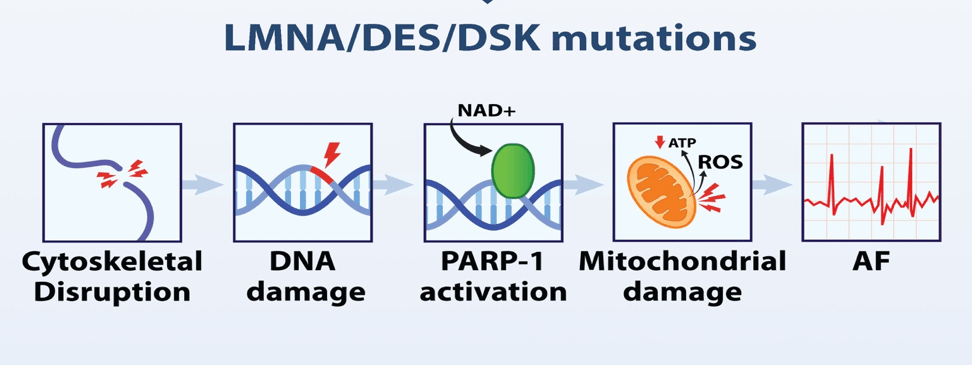Personalised Atrial Fibrillation Fingerprinting: role in diagnosing disease
When Atrial Fibrillation (AF) is diagnosed, you only have information on having the arrhythmia or you don’t. There isn’t enough research insight, nor are there any diagnostic tools, that delve into diagnosing the stage of AF in patients. Recent studies have opened up the idea that observing electrical signal fingerprints could be used to pinpoint the stage of AF during diagnosis. Moreover, when combined with a look into a patient’s mechanism-based biomarkers (proteins and genes), we may be able to identify the severity of AF, and employ more effective therapies accordingly.
- High resolution electrical mapping could provide a solution for staging AF, but there are no non-invasive measurements possible
- Mechanism-based biomarkers in blood could be indicators of the severity of AF
Could High-resolution electrical mapping be the solution to AF diagnosis?
Recently, a study where 1,763,593 potentials were surgically collected from the epicardial surface (the inner layer of the membrane enclosing the heart) of 189 patients with coronary artery disease took place. It was concluded that the severity and extensiveness of irregular conduction, can be observed in the morphology of potentials. Meaning, electrical signal fingerprints could potentially be used to identify patients at risk for AF onset or progression by measuring the severity and extensiveness of conduction irregularities.
There is of course the downside of this diagnosis involving an invasive procedure. But perhaps this could be the first step towards a less invasive, and finally non-invasive, signal fingerprint for accurately pinpointing the stage of AF. Researchers within AFIP work on a non-invasive AF Fingerprint approach to early diagnose AF.
Could our proteins and genes hold the key to staging AF?
Another tangent which is worth exploring when it comes to figuring out which stage a patient’s AF is at, is that of mechanism-based biomarkers (molecules, proteins or genes) in the blood. Specifically the combination of electrical signal fingerprint with a biological signal fingerprint.
Several clinical studies show that there is a relationship between proteostasis, DNA damage and inflammatory biomarkers in human atrial tissue and/or blood samples, and AF incidence in patients as well as onset of post-operative AF. Some of these mechanism-based markers observed in the process of biological signal fingerprinting include mitochondrial DNA, 8-OHdGX, HSPs and inflammatory markers like C-reactive protein (CRP), interleukin (IL)-6, IL-1β, myeloperoxidase (MPO), and tumor necrosis factor-α (TNF-α).
Most of these markers correspond to the progression of AF, and can even predict the outcome of AF surgery, as well as the onset of post-operative. These studies could mark quite the difference in AF diagnosis. It could mean that we can identify the stage of AF in a patient via mechanism-based biological signal fingerprinting. Not only that, perhaps we could also predict the progression of the illness itself, as well as AF onset in patients undergoing cardiac surgery.
Do you know someone who might be interested in this?






